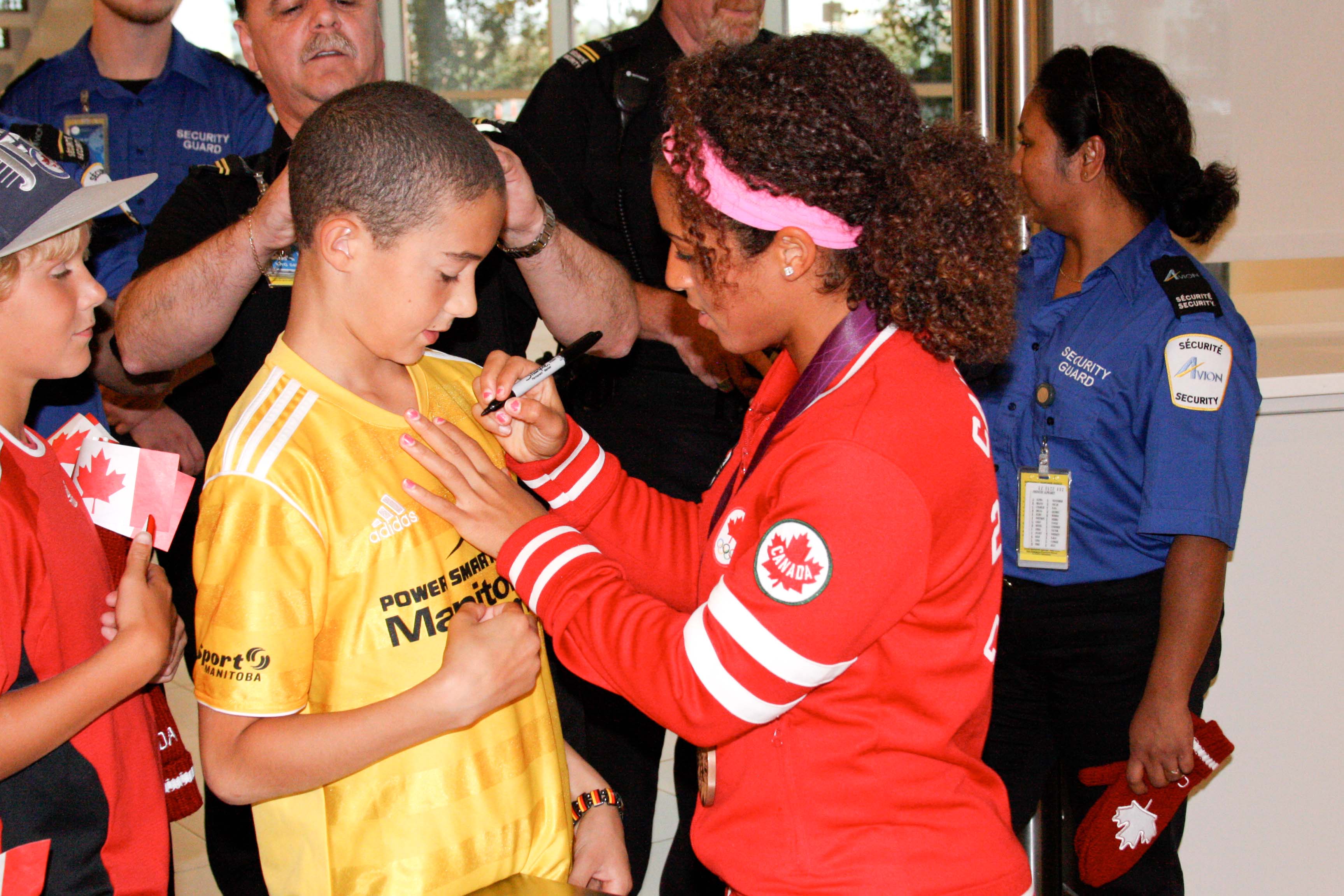The Canadian Olympic women’s soccer team was never expected to be gold medal contenders in London. The team had put in a disastrous performance at the 2011 FIFA Women’s World Cup in Germany, and no Canadian soccer team had ever reached the Olympic podium.
That’s partially why I considered Team Canada’s bronze medal run to be the most remarkable and memorable Canadian Olympic performance of London 2012. With all due respect to the hundreds of Canadian athletes who represented their country with pride at the London 2012 Olympic Games, the women’s soccer team story really had it all: intrigue, drama, controversy, heartbreak, and triumph.
Since women’s soccer was officially added to the Olympic program in 1996, the Canadian national team had only once qualified for the games – in 2008, where they lost to the United States in the quarter-finals.
While the rematch with the USA in the semi-finals was arguably their most dramatic and exciting match of the tournament, their quarter-finals match-up against Great Britain was not only the most significant match of the tournament, but also in Canadian soccer history. With their decisive 2-0 win over the host nation, Team Canada would be guaranteed a shot to play for a medal no matter what happened in their semi-final match against their bitter rivals.
Heading into that pivotal match, Canada had not defeated the USA in women’s soccer since 2001. An upset victory in such a crucial game would have been an incredible moment for the national program. Despite the devastating loss, the match managed to raise the profile of women’s soccer in Canada. With a three-goal performance in the match, Christine Sinclair was deservedly selected as Canada’s flag-bearer for the closing ceremonies. It was the second most-watched Olympic event in Canada, according to Canadian’s Olympic Broadcast Media Consortium. Only the 2010 Olympic hockey final had better ratings.
With the semi-final game behind them, Canada was set to face off against France for the bronze medal. By all accounts, France dominated for the majority of the match. France might have taken a one-goal lead late in the match if not for the brilliant defensive work of Winnipeg’s own Desiree Scott, who deftly stopped a sure goal before it crossed the goal line. Canada was able to keep the score sheet clean, until Diana Matheson put the ball past the French goalkeeper in the final minute of extra time and secured Canada a spot on the podium.
What makes the team’s success in London so fantastic is that it is something that can be celebrated collectively as a country like any other medalled event, but also shared more intimately as Olympians return to hometowns across our vast nation.
When our local hero Desiree Scott returned from London, she was met with the cheers hundreds of friends, fans, and family who congregated at the Winnipeg airport to get a glimpse of our cities most recent Olympic medalist. Scott is perhaps the finest example of what can emerge from the Winnipeg soccer scene.
Finding her love for soccer during her childhood in Winnipeg, Scott has represented Canada at every level throughout her development, and also spent five years playing for U of M Bisons women’s soccer team. She has spent time playing with the Vancouver Whitecaps women’s program and most recently has returned as an assistant coach for the Bison soccer program.
Scott continues to set a wonderful example for young soccer players around the province, proving that soccer dreams can come true.





